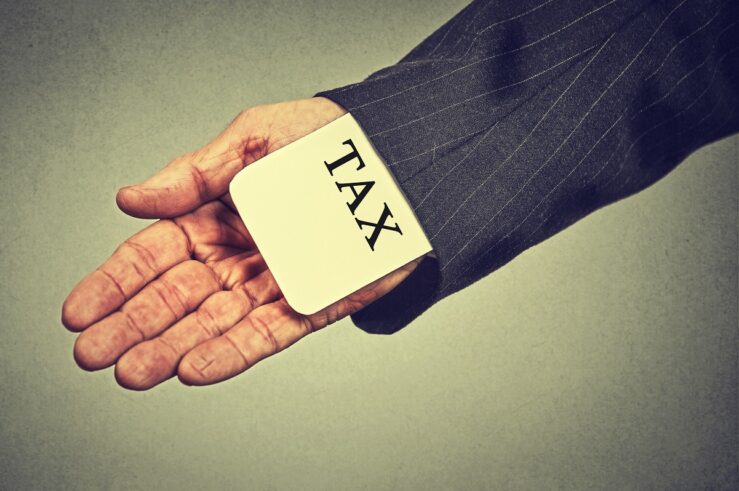Showing results for: “digital markets act”
Slade: The Draft Vertical Merger Guidelines Are a Step in the Right Direction, But Uneven on Critical Issues
[TOTM: The following is part of a symposium by TOTM guests and authors on the 2020 Vertical Merger Guidelines. The entire series of posts is available here. This post is authored by Margaret E. Slade (Professor Emeritus, Vancouver School of Economics, The University of British Columbia).] A revision of the DOJ’s Non-Horizontal Merger Guidelines is ... Slade: The Draft Vertical Merger Guidelines Are a Step in the Right Direction, But Uneven on Critical Issues
Jack Calfee, In Memoriam, by Paul Rubin
My good friend and coauthor John E. (Jack) Calfee died suddenly of a heart attack last month. He was bon in 1941 and was 69 years old. Jack came late to economics. After graduating from Rice with a major in mathematics, he studied international relations at the University of Chicago and then worked for AT&T ... Jack Calfee, In Memoriam, by Paul Rubin
One More Thought on Ex Ante Competition and Merger Analysis
One last issue with respect to ex ante competition and merger analysis. What if it could be demonstrated convincingly that XM and Sirius payments to automobile manufacturers. The DOJ hints at this possibility in the press release: XM and Sirius engaged in head-to-head competition for the right to distribute their products and services through each ... One More Thought on Ex Ante Competition and Merger Analysis
More Thoughts on Free Market Orthodoxy in Antitrust
In my last post I claimed that there is a no “free market economics orthodoxy” amongst antitrust economists or those working in the field of law and economics. In response to the post, an anonymous TOTM reader emails the following related, and probably more interesting, questions: “is there a free market orthodoxy amongst (1) legal ... More Thoughts on Free Market Orthodoxy in Antitrust
Towards an Organ Procurement and Transplantation Network Analogue For Allocation of Emergency Medical Resources
[TOTM: The following is part of a blog series by TOTM guests and authors on the law, economics, and policy of the ongoing COVID-19 pandemic. The entire series of posts is available here. This post is authored by Geoffrey A. Manne, (President, ICLE; Distinguished Fellow, Northwestern University Center on Law, Business, and Economics).] There has been much (admittedly ... Towards an Organ Procurement and Transplantation Network Analogue For Allocation of Emergency Medical Resources
The Snobbery of Bashing Big Tech
In the spring of 1669 a “flying coach” transported six passengers from Oxford to London in a single day. Within a few years similar carriage services connected many major towns to the capital. “As usual,” Lord Macaulay wrote in his history of England, “many persons” were “disposed to clamour against the innovation, simply because it ... The Snobbery of Bashing Big Tech
Congress Considers Privacy in the Context of COVID-19 and Gets it All Wrong
The COVID-19 crisis has recast virtually every contemporary policy debate in the context of public health, and digital privacy is no exception. Conversations that once focused on the value and manner of tracking to enable behavioral advertising have shifted. Congress, on the heels of years of false-starts and failed efforts to introduce nationwide standards, is ... Congress Considers Privacy in the Context of COVID-19 and Gets it All Wrong
How the Court’s “looks-like-cable-tv” test in Aereo protects the cloud
In our blog post this morning on ABC v. Aereo, we explain why, regardless of which test applies (the majority’s “looks-like-cable-TV” test or the dissent’s volitional conduct test), Aereo infringes on television program owners’ exclusive right under the Copyright Act to publicly perform their works. We also explain why the majority’s test is far less ambiguous than its critics ... How the Court’s “looks-like-cable-tv” test in Aereo protects the cloud
Joshua Wright, Martin Gaynor and Past FTC Officials to Speak at ICLE Event on Apple and Amazon Cases
The Federal Trade Commission’s recent enforcement actions against Amazon and Apple raise important questions about the FTC’s consumer protection practices, especially its use of economics. How does the Commission weigh the costs and benefits of its enforcement decisions? How does the agency employ economic analysis in digital consumer protection cases generally? Join the International Center ... Joshua Wright, Martin Gaynor and Past FTC Officials to Speak at ICLE Event on Apple and Amazon Cases
Public Knowledge’s Lonely Echo Chamber of Copyright Advocacy
Yesterday the Chairman and Ranking Member of the House Judiciary Committee issued the first set of policy proposals following their long-running copyright review process. These proposals were principally aimed at ensuring that the IT demands of the Copyright Office were properly met so that it could perform its assigned functions, and to provide adequate authority ... Public Knowledge’s Lonely Echo Chamber of Copyright Advocacy
The Effect of VAT Withholding Requirements in Latin America
Innovations in payment systems are rapidly transforming the world economy. While Bitcoin, Ethereum, and other decentralized blockchain-based systems tend to garner much of the press (good and bad), centralized peer-to-peer (P2P) payment systems are far more common. (Note that I use the term P2P here in its original sense to mean all peer-to-peer transactions, which ... The Effect of VAT Withholding Requirements in Latin America
The FTC should address how (and whether) it assesses causation as it looks to define “informational injury”
The FTC will hold an “Informational Injury Workshop” in December “to examine consumer injury in the context of privacy and data security.” Defining the scope of cognizable harm that may result from the unauthorized use or third-party hacking of consumer information is, to be sure, a crucial inquiry, particularly as ever-more information is stored digitally. ... The FTC should address how (and whether) it assesses causation as it looks to define “informational injury”







